Volvo EX30 vs Polestar 4 - Differences and prices compared
Costs and Efficiency:
When it comes to price and running costs, the biggest differences usually appear. This is often where you see which car fits your budget better in the long run.
Volvo EX30 has a significantly advantage in terms of price – it starts at 33000 £, while the Polestar 4 costs 53100 £. That’s a price difference of around 20066 £.
In terms of energy consumption, the advantage goes to the Volvo EX30: with 17 kWh per 100 km, it’s minimal more efficient than the Polestar 4 with 17.80 kWh. That’s a difference of about 0.80 kWh.
As for range, the Polestar 4 performs evident better – achieving up to 620 km, about 144 km more than the Volvo EX30.
Engine and Performance:
Under the bonnet, it becomes clear which model is tuned for sportiness and which one takes the lead when you hit the accelerator.
When it comes to engine power, the Polestar 4 has a noticeable edge – offering 544 HP compared to 428 HP. That’s roughly 116 HP more horsepower.
In acceleration from 0 to 100 km/h, the Volvo EX30 is barely noticeable quicker – completing the sprint in 3.60 s, while the Polestar 4 takes 3.80 s. That’s about 0.20 s faster.
In terms of top speed, the Polestar 4 performs minimal better – reaching 200 km/h, while the Volvo EX30 tops out at 180 km/h. The difference is around 20 km/h.
There’s also a difference in torque: Polestar 4 pulls noticeable stronger with 686 Nm compared to 543 Nm. That’s about 143 Nm difference.
Space and Everyday Use:
Whether family car or daily driver – which one offers more room, flexibility and comfort?
Seats: offers more seating capacity – vs .
In curb weight, Volvo EX30 is clearly perceptible lighter – 1840 kg compared to 2230 kg. The difference is around 390 kg.
In terms of boot space, the Polestar 4 offers evident more room – 526 L compared to 318 L. That’s a difference of about 208 L.
In maximum load capacity, the Polestar 4 performs clearly perceptible better – up to 1536 L, which is about 536 L more than the Volvo EX30.
When it comes to payload, Polestar 4 a bit takes the win – 455 kg compared to 390 kg. That’s a difference of about 65 kg.
Who comes out on top?
Overall, the Polestar 4 shows itself to be outperforms in nearly all aspects and secures the title of DriveDuel Champion.
It convinces with the more balanced overall package and proves to be the more versatile choice for everyday use.
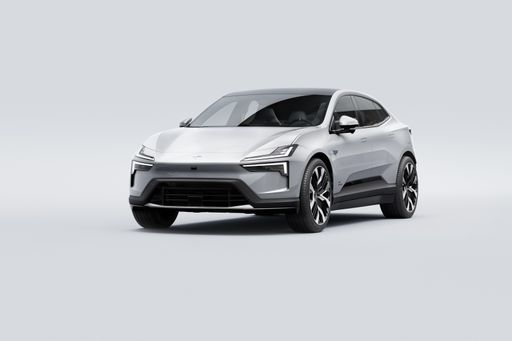 @ Polestar Automotive Holding
@ Polestar Automotive Holding
Polestar 4
Costs and Consumption
View detailed analysis
Engine and Performance
View detailed analysis
Dimensions and Body
View detailed analysis
Volvo EX30
The Volvo EX30 arrives as a compact electric with crisp Scandinavian design and a cheeky personality, proving you can be serious about safety and still enjoy a grin on your commute. Its cabin is cleverly packaged and delightfully easy to live with, offering smart tech and practical touches that make it feel like a grown-up's city car with a sense of fun.
details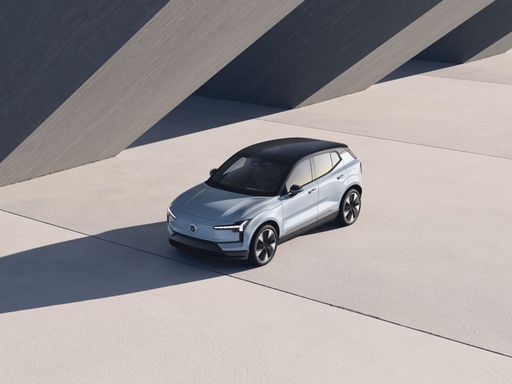 @ Volvo Cars
@ Volvo Cars
 @ Volvo Cars
@ Volvo Cars
 @ Volvo Cars
@ Volvo Cars
 @ Volvo Cars
@ Volvo Cars
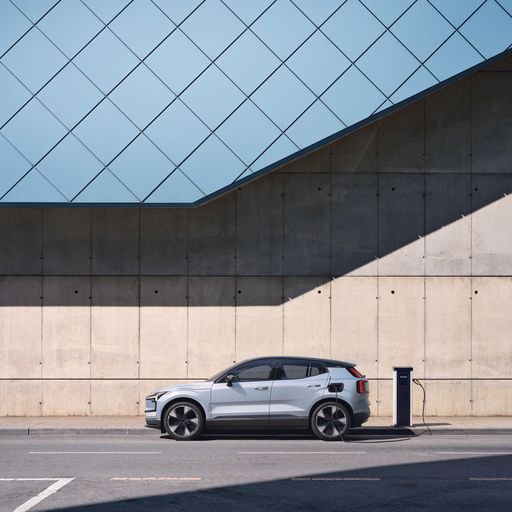 @ Volvo Cars
@ Volvo Cars
Polestar 4
The Polestar 4 wears a coupe-like profile and a Scandinavian-minimal interior that feels premium and unexpectedly roomy, with composed handling that makes urban driving and country roads a pleasure. For buyers who want an electric car that turns heads without shouting, the Polestar 4 is a stylish, clever choice that balances practicality with personality.
details @ Polestar Automotive Holding
@ Polestar Automotive Holding
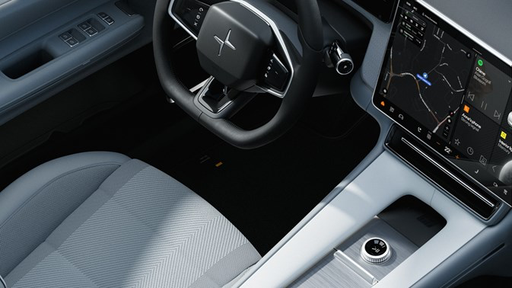 @ Polestar Automotive Holding
@ Polestar Automotive Holding
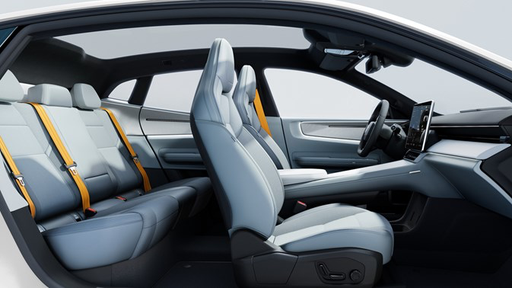 @ Polestar Automotive Holding
@ Polestar Automotive Holding
 @ Volvo Cars
@ Volvo Cars
|
 @ Polestar Automotive Holding
@ Polestar Automotive Holding
|
|
|
|
Costs and Consumption |
|
|---|---|
|
Price
33000 - 49100 £
|
Price
53100 - 59900 £
|
|
Consumption L/100km
-
|
Consumption L/100km
-
|
|
Consumption kWh/100km
17 - 18.7 kWh
|
Consumption kWh/100km
17.8 - 18.7 kWh
|
|
Electric Range
339 - 476 km
|
Electric Range
590 - 620 km
|
|
Battery Capacity
49 - 65 kWh
|
Battery Capacity
94 kWh
|
|
co2
0 g/km
|
co2
0 g/km
|
|
Fuel tank capacity
-
|
Fuel tank capacity
-
|
Dimensions and Body |
|
|---|---|
|
Body Type
SUV
|
Body Type
SUV
|
|
Seats
5
|
Seats
5
|
|
Doors
5
|
Doors
5
|
|
Curb weight
1840 - 1960 kg
|
Curb weight
2230 - 2355 kg
|
|
Trunk capacity
318 L
|
Trunk capacity
526 L
|
|
Length
4233 mm
|
Length
4840 mm
|
|
Width
1838 mm
|
Width
2008 mm
|
|
Height
1550 - 1567 mm
|
Height
1534 mm
|
|
Max trunk capacity
1000 L
|
Max trunk capacity
1536 L
|
|
Payload
370 - 390 kg
|
Payload
455 kg
|
Engine and Performance |
|
|---|---|
|
Engine Type
Electric
|
Engine Type
Electric
|
|
Transmission
Automatic
|
Transmission
Automatic
|
|
Transmission Detail
Reduction Gearbox
|
Transmission Detail
Reduction Gearbox
|
|
Drive Type
Rear-Wheel Drive, All-Wheel Drive
|
Drive Type
All-Wheel Drive, Rear-Wheel Drive
|
|
Power HP
272 - 428 HP
|
Power HP
272 - 544 HP
|
|
Acceleration 0-100km/h
3.6 - 5.7 s
|
Acceleration 0-100km/h
3.8 - 7.1 s
|
|
Max Speed
180 km/h
|
Max Speed
200 km/h
|
|
Torque
343 - 543 Nm
|
Torque
343 - 686 Nm
|
|
Number of Cylinders
-
|
Number of Cylinders
-
|
|
Power kW
200 - 315 kW
|
Power kW
200 - 400 kW
|
|
Engine capacity
-
|
Engine capacity
-
|
General |
|
|---|---|
|
Model Year
2024 - 2025
|
Model Year
2024
|
|
CO2 Efficiency Class
A
|
CO2 Efficiency Class
A
|
|
Brand
Volvo
|
Brand
Polestar
|
What drivetrain options does the Volvo EX30 have?
The Volvo EX30 is offered with Rear-Wheel Drive or All-Wheel Drive.
The prices and data displayed are estimates based on German list prices and may vary by country. This information is not legally binding.
